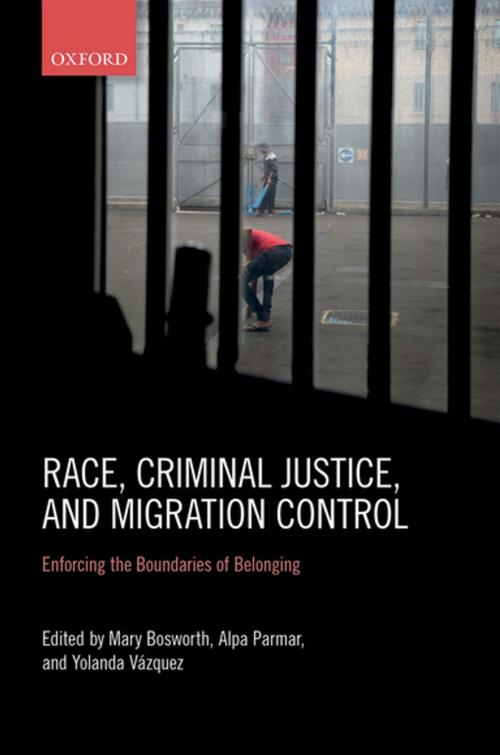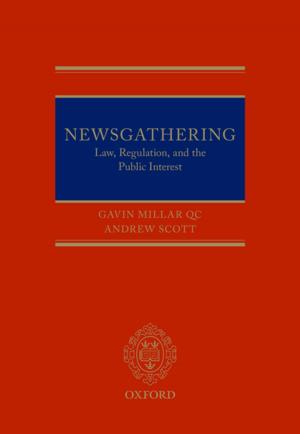Race, Criminal Justice, and Migration Control
Enforcing the Boundaries of Belonging
Nonfiction, Social & Cultural Studies, Social Science, Crimes & Criminals, Criminology, Reference & Language, Law| Author: | ISBN: | 9780192546531 | |
| Publisher: | OUP Oxford | Publication: | January 12, 2018 |
| Imprint: | OUP Oxford | Language: | English |
| Author: | |
| ISBN: | 9780192546531 |
| Publisher: | OUP Oxford |
| Publication: | January 12, 2018 |
| Imprint: | OUP Oxford |
| Language: | English |
In an era of mass mobility, those who are permitted to migrate and those who are criminalized, controlled, and prohibited from migrating are heavily patterned by race. By placing race at the centre of its analysis, this volume brings together fourteen chapters that examine, question, and explain the growing intersection between criminal justice and migration control. Through the lens of race, we see how criminal justice and migration enmesh in order to exclude, stop, and excise racialized citizens and non-citizens from societies across the world within, beyond, and along borders. Neatly organized in four parts, the book begins with chapters that present a conceptual analysis of race, borders, and social control, moving to the institutions that make up and shape the criminal justice and migration complex. The remaining chapters are convened around the key sites where criminal justice and migration control intersect: policing, courts, and punishment. Together the volume presents a critical and timely analysis of how race shapes and complicates mobility and how racism is enabled and reanimated when criminal justice and migration control coalesce. Race and the meaning of race in relation to citizenship and belonging is excavated throughout the chapters presented in the book, thereby transforming the way we think about migration.
In an era of mass mobility, those who are permitted to migrate and those who are criminalized, controlled, and prohibited from migrating are heavily patterned by race. By placing race at the centre of its analysis, this volume brings together fourteen chapters that examine, question, and explain the growing intersection between criminal justice and migration control. Through the lens of race, we see how criminal justice and migration enmesh in order to exclude, stop, and excise racialized citizens and non-citizens from societies across the world within, beyond, and along borders. Neatly organized in four parts, the book begins with chapters that present a conceptual analysis of race, borders, and social control, moving to the institutions that make up and shape the criminal justice and migration complex. The remaining chapters are convened around the key sites where criminal justice and migration control intersect: policing, courts, and punishment. Together the volume presents a critical and timely analysis of how race shapes and complicates mobility and how racism is enabled and reanimated when criminal justice and migration control coalesce. Race and the meaning of race in relation to citizenship and belonging is excavated throughout the chapters presented in the book, thereby transforming the way we think about migration.















